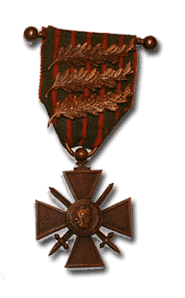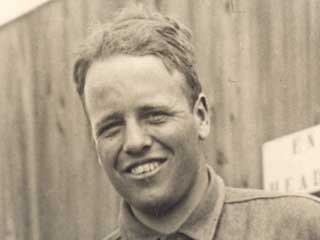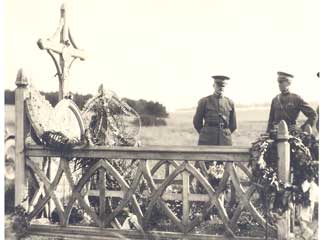United States Air Service
USAS HistorySummary 1917-1918 Lafayette Escadrille
N.124/Spa.124 1st Observation
1st, 12th, 50th, 88th 1st Pursuit Group
27th, 94th, 95th, 147th 1st Bombardment
96th, 11th, 20th 2nd Pursuit Group
13th, 22nd, 49th, 139th 3rd Pursuit Group
28th, 93rd, 103rd, 213th 4th Pursuit Group
17th, 148th, 25th, 141st 5th Pursuit Group
41st, 138th, 638th 3rd Air Park
255th. List of Aces
United States Naval Aviation
US Naval AviationUnited States Marine Corps Aviation
US Marine AviationAircraft
 Nieuport 28
Spad VII
Spad XIII
Fokker Dr.1
Albatros D.Va
Fokker D.VII
Nieuport 28
Spad VII
Spad XIII
Fokker Dr.1
Albatros D.Va
Fokker D.VII
Website: Atlanta SEO
E-mail us

Quentin Roosevelt

Quentin Roosevelt - probably at 3rd AIC Issoudun
It is hard to believe the impact that Quentin Roosevelt's death had on the world at that time. He is perhaps one of the three most famous casualties of the war along with the Red Baron and the Archduke Ferdinand (who was actually killed before the war, of course). To illustrate this piont, the book "Quentin Roosevelt: A Sketch in Letters" has many interesting posthumous tributes from a who's who of World War I leaders as well as from regular troops. This quote is from a clipping from the Kolnische Zeitung obtained through the Spanish Embassy:
"The aviator of the American Squadron, Quentin Roosevelt, in trying to break through the air zone over the Marne, met the death of a hero. A formation of seven German aeroplanes, while crossing the Marne, saw in the neighborhood of Dormans a group of twelve American fighting aeroplanes and attacked them. A lively air battle began, in which one American in particular persisted in attacking. The principal feature of the battle consisted in an air duel between the American and a German fighting pilot, named Sergeant Greper. After a short struggle Greper succeeded in bringing the brave American just before his gun-sights. After a few shots the plane apparently got out of his control; the American began to fall and struck the ground near the village of Chamery, about ten kilometres north of the Marne. The American flyer was killed by two shots through the head. Papers in his pocket showed him to be Quentin Roosevelt, of the United States army. His effects are being taken care of in order to be sent to his relatives. He was buried by German aviators with military honors." p.174

General Pershing at Quentin Roosevelt's grave
His gravesite became a pilgrimage shrine for American soldiers and their leaders. An American officer described Quentin Roosevelt's gravesite as follows:
"I was back of the lines on a truck, in search of kitchen utensils and other things for the men, when down the road came a big open truck loaded with something which looked like a gigantic wooden bed-perhaps twelve feet long and eight feet wide. At the head of it there was a large shield, and above this a carved wooden cross. Did I not know the French idea of homage to the dead, I would not have recognized what it was. As we went by, I looked at the shield-in large carved letters I saw the words 'Quentin Roosevelt.' You see he is buried not far to our rear. It was a bit of French tribute, for, to these people, there is no man like Roosevelt. They still talk about him, and their eyes snap whenever his name is mentioned. He commands their profound respect: they consider him their friend; this was the only way they could show it." p.178
"Paths have been worn to the grave from a half a dozen different points-worn by American soldiers, who are still walking sometimes five and six miles just to see the spot and pay reverence to the young American who to serve his country entered the most dangerous branch of the service." p. 184

German photo of Quentin Roosevelt next to his Nieuport 28 on July 14, 1918 or very soon thereafter.
NOTE: The photo of Quentin Roosevelt next to his wrecked Nieuport 28 (above) was used as a postcard and "Propaganda" by the Germans. They had hoped to create sympathy for the German cause but suffered severe backlash for killing former President Roosevelt's son as the following quote states.
"...a young German officer, quite intelligent, who delighted in discussing the war, and who would ask many questions about America and our entering into the war. This young officer told my brother the following in substance, concerning the effect upon the Germans at the falling of your son Quentin. That when he fell the fact was heralded throughout the German army, and throughout the Central powers. That photos of his grave and his wrecked plane were published and exhibited profusely far and wide. That the German authorities believed it to be good propaganda, with which to hearten both the soldiers and the people at home. But that it had the opposite effect and produced as far as they were concerned a negative effect or result. That no sooner had Quentin fallen but that it was whispered from ear to ear, from trench to trench. That in it one could see how in free America everybody was fighting. That though America was in the war only for a short time, the son of an American President, engaged in one of the most dangerous lines of service, was lying back of the German lines, while their country had been at war three years and that neither the Kaiser, nor any of his sons were ever so much as scratched. That it gave the soldiers a vision of the democracy of America, and helped to deepen the feeling that they, the common soldiers, were only cannon fodder for the Kaiser. That it made real to them the difference between autocracy and democracy, of which they had heard so much. That this feeling spread like wild fire, not only throughout the army, but also among the people at home. That those elements in Germany that were opposed to the war seized upon it and enlarged the suggestion. This young officer declared that in the judgment of many this was the largest single factor in the breaking of the morale of the German Army." p. 197
Here are a few other interesting quotes...
"OFFICIAL JUDGMENT
AMERICAN EXPEDITIONARY FORCES
OFFICE OF THE COMMANDEK-IN-CHIEF
France, July 27th, 1918.
Colonel Theodore Roosevelt, Oyster Bay, Long Island, New York.
MY DEAR COLONEL:
Since my cablegram of July 17th, I have delayed writing you in the hope that we might still learn that, through some good fortune, your son Quentin had managed to land safely inside the German lines. Now the telegram from the International Red Cross at Berne, stating that the German Red Cross confirms the newspaper reports of his death, has taken even this hope away. Quentin died as he had lived and served, nobly and unselfishly; in the full strength and vigor of his youth, fighting the enemy in clean combat. You may well be proud of your gift to the nation in his supreme sacrifice. I realize that time alone can heal the wound, yet I know that at such a time the stumbling words of understanding from one's friends help, and I want to express to you and to Quentin's mother my deepest sympathy and friendship. Perhaps I can come as near to realizing what such a loss means as anyone. Enclosed is a copy of his official record in the Air Service. The brevity and curtness of the official words paint clearly the picture of his service, which was an honor to all of us. Believe me,
Sincerely yours,
JOHN J. PERSHING" pp. 198-199
"AMERICAN EXPEDITIONARY FORCES OFFICE OF THE COMMANDER-IN-CHIEF.
France, August 23rd, 1918.
Colonel Theodore Roosevelt,
Oyster Bay, L. I. New York.
MY DEAR COLONEL ROOSEVELT:
Believing that you and Mrs. Roosevelt would want complete information as to where your son rests, I requested that there be prepared an official report, accompanied by photographs. These have just reached me and I am enclosing them to you. The manner in which Quentin's comrades have marked and sheltered his grave shows how much they loved him, and this must offer you and Mrs. Roosevelt some consolation in the great sacrifice you have made. Again expressing my regret over the loss of this splendid young soldier, and my sympathy with you, Mrs. Roosevelt and the family, I am, my dear Colonel Roosevelt, Sincerely yours,
JOHN J. PERSHING", p. 203
"MONSIEUR LE PRESIDENT,
18 Juillet 1918
J'apprends la mort glorieuse de votre fils, le capitaine aviateur Roosevelt, tombe au front de France en combattant pour la cause de la liberte. Si votre douleur peut avoir quelque adoucissement, vous le trouverez certainement dans ce fait que votre fils a trouve une mort hero que en combattant sous les plis du drapeau Americain que la France entiere salue comme le symbole de la victoire certaine. Veuillez agreer, Monsieur le President, avec les sinceres et vives condoleances de l'Armee Francaise, l'assurance de toute ma sympathie.
CH. PETAIN.
SG GRAND QUARTIER GENERAL Des ARMEES FRANÇAISES DE L'EST"
"From the Naval Institute of July, 1919:
'The only French war craft named after a citizen other than of France, is the torpedo-boat destroyer Quentin Roosevelt, named recently as a mark of respect to the late ex-president and his son. The destroyer is the former Russian Buiki, which has been taken over by French naval authorities and renamed. She was rechristened last September. The Quentin Roosevelt was turned over by the Russians to the French because their navy was at that time short of men and they were unable to man her.'"-Institute. pp. 209-210
Former President Theodore Roosevelt was at Oyster Bay when he was notified of his son's death the morning of July 17, 1918 . He wrote about his son just before his own death:
"Death is certainly not a black unmentionable thing, and I feel that dead people should be talked of just as though they were alive. At mess and sitting around in our quarters the boys that have been killed are spoken of all the time when any little thing reminds some one of them. To me Quentin is just away somewhere. I know we shall see each again and have a grand old 'hoosh' talking over everything together. I miss him the way I miss mother or the family, for his personality or spirit are just as real and vivid as they ever were."
President Roosevelt was heart-broken at losing his youngest son. Some say he never recovered emotionally and then it was he, the grieving father, who died three five and a half months later on January 6, 1919.
Learn more about Quentin Roosevelt:
Quentin Roosevelt Biography
Quentin Roosevelt Event in Chateau-Thierry 2010
Quentin Roosevelt Event in Saints, Touquin, Mauperthius 2008
Quentin Roosevelt Tributes
5 Roosevelt Kids off to War
"American Eagles" - 375 page illustrated history of US Combat Aviation in World War I
Related Links: Quentin Roosevelt | Frank Luke | Eddie Rickenbacker | Raoul Lufbery | Eugene Bullard | David Ingalls - 1st Navy Ace | "American Eagles" - 345 page illustrated history of US Combat Aviation in World War I
Events/Airshows
 Events/Airshows
Events/Airshows
Pilots/Aviators
 Raoul Lufbery
Raoul LufberyAce of Aces Eddie Rickenbacker
26 victories Quentin Roosevelt
Son of President KIA Frank Luke
18 victories in 17 days Eugene Bullard
1st African Am. Pilot David Ingalls
1st US Navy Ace List of USAS Pilots
Find a Relative American WWI Pilots
Mini bios
USAS Research
 USAS Videos
Reading List
USAS Videos
Reading ListWWI US Aviation Related Links
WWI US Aviation Credits War Wings
by Phillip W. Stewart WWI Maps
Units & Airfields Payne Field
USAS Aerodromes now... USAS Archives
Questions? Need Help? American Expeditionary Forces
WWI Doughboys in France